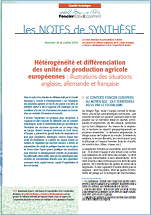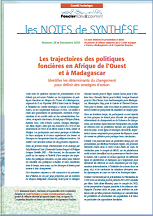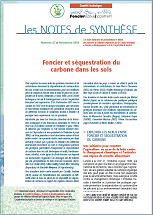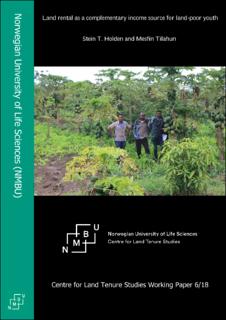Hétérogénéité et différenciation des unités de production agricole européennes
Dans le cadre d’un chantier de réflexion initié par le Comité technique « Foncier & développement » sur l’évolution des structures agraires et l’accès des jeunes à la terre, la présente séance a visé à apporter des éclairages sur les conditions d’accès (ou d’exclusion) des jeunes au foncier dans un contexte d’économie de marché.







